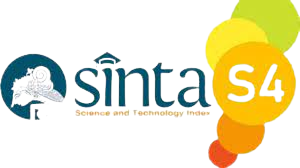Peran Pemerintah dalam Program Pembangunan Desa Wonosari Kecamatan Tutur Kabupaten Pasuruan
The Role of the Government in the Wonosari Village Development Program, Tutur District, Pasuruan Regency
DOI:
https://doi.org/10.21070/jkmp.v6i1.1914Keywords:
Role of Government, Build, DevelopmentAbstract
This study aims to describe the role of government in building of Wonosari village, Tutur sub district, Pasuruan regency and how the implementation program of the building of Wonosari village. This study uses qualitative descriptive. The informants of this study are head of department, head of compiling program, head and members of local gov- ernment, BPD and societies. Collecting data technique doing by triangulation, inductive data analysis, and the result of the qualitative study emphasize to the good meaning of the study. this study showed that the role of government in building of Wonosari village is good enough and balance. The cooperation is mutual where the involved knowing each the position and role in build the village. The local government has role to facilitate the societies and give good guidance about the purpose of the building. People play the role in giving the ideas, energy and wealth to the success of build. Whereas, the support fac- tor is cooperation of government – society is the approach of government to the society. And the society has understood about their position and their role in study. In addition to, the inhibit factor is minimal awareness of society to the program and there is still opinion from the government that society is the object of supervision build.
References
Adisasmita, R. (2013). Pembangunan Perdesaan (Makassar: Graha Ilmu).
Bryant and White (1987). Manajemen Pembangunan Untuk Negara Berkembang (Jakarta: LP3ES), 3–3.
Daldjoeni and Suyitno (2004). Perdesaan, Lingkungan dan Pembangunan (Bandung: PT. Alumni).
Fauzi, A. (2013). Peran Lurah Dalam Pembangunan Infrastruktur di Kelurahan Kolongan Mitung Kecamatan Tahuna Barat Kabupaten Sangihe 5, 90–100.
Henslin, J. M. (2007). Sosiologi dengan Pendekatan Mem- bumi (Jakarta: Erlangga).
Kartasasmita, G. (2001). Pembangunan Untuk Rakyat: Memadukan Pertumbuhan dan Pemerataan (Jakarta: Pus- taka Cidesindo).
Korten, D. and Sjahrir (1988). Pembangunan Berdimensi Ker- akyatan (Jakarta: Yayasan Obor Indonesia).
Moelyono, A. M. (1949). Tata Bahasa Baku Bahasa Indonesia.
Jakarta: Balai Pustaka . (Jakarta: Balai Pustaka).
Muljana, B. S. (2001). Teori dan Strategi Pembangunan Nasional (Jakarta: Haji Masagung).
Rustiadi, E., Saefulhakim, S., and Panuju, D. R. (2009). Peren- canaan dan Pengembangan Wilayah (Jakarta: Yayasan Obor Indonesia).
Siagian, S. P. (2003). Teori dan Praktek Kepemimpinan (Jakarta: Rineka Cipta).
Soekanto, S. (2002). Teori Peranan (Jakarta: Bumi Aksara).
Solekhan, M. (2012). Penyelanggaraan Pemerintahan Desa (Malang: Setara Press).
Supriatna, T. (1996). Aspek Sikap Mental dalam Manajemen Sumber Daya Manusia (Jakarta: Nimas Multima).
Thoha, M. (1997). Prilaku Organisasi, Konsep Dasar dan Aplikasinya (Jakarta: Raja Grafindo Persada).
Tjokrowinoto, M. (1987). Politik Pembangunan (Yogyakarta: Tiara Wacana).
Ulumiyah, I., Gani, A. J. A., and Mindarti, L. I. (2015). Peran Pemerintah Desa Dalam Memberdayakan . Jurnal Admin- istrasi Publik (JAP) 1, 890–899.
Winarno, B. (2007). Kebijakan Publik Teori dan Proses (Yogyakarta: Media Press. Peraturan Menteri Dalam Negeri Nomor 114 Tentang Pedoman Pembangunan Desa).
















